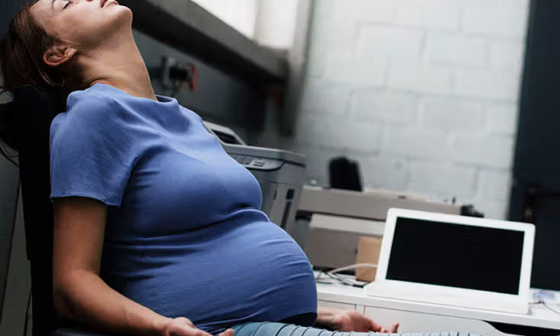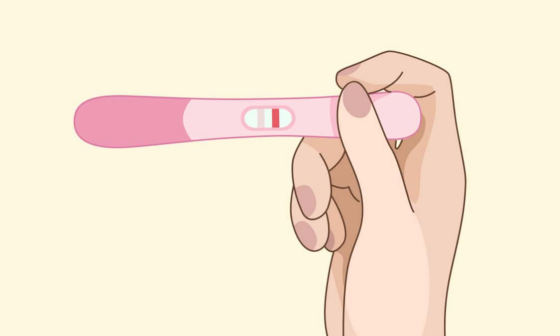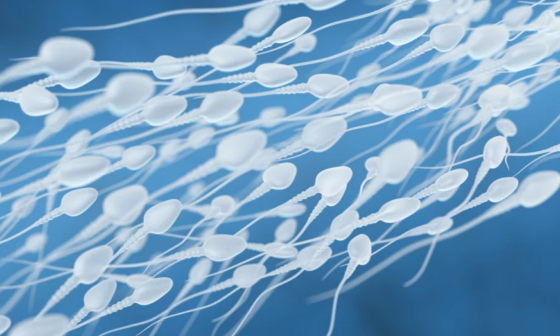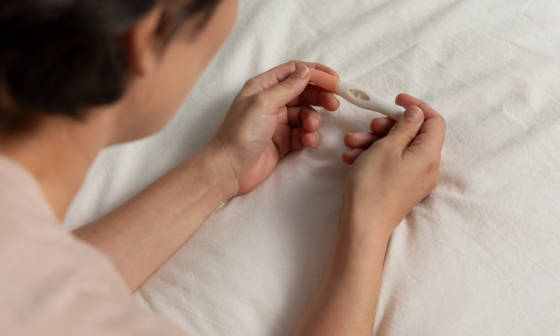The timing of a pregnancy test can significantly affect the accuracy of results. With many individuals eager to know whether or not they’re expecting, it’s natural to wonder how long to wait before testing. Taking the test too early may lead to a false result, causing confusion or stress. Here’s a comprehensive guide on how long to take a pregnancy test after intercourse for the most reliable outcome.
How Pregnancy Tests Work
Pregnancy tests detect the hormone hCG (human chorionic gonadotropin), which the body produces shortly after a fertilized egg attaches to the uterine lining. In most cases, hCG levels begin to rise within 6-12 days after conception, doubling every 48-72 hours, and can generally be detected by a pregnancy test within a few days of missing a period. Understanding this hormone’s role is key to knowing the best time to test.
When to Take a Pregnancy Test After Intercourse
For most reliable results, it’s ideal to take a pregnancy test about two weeks after ovulation or around the time your period is due. Testing earlier may yield a negative result simply because hCG levels haven’t reached a detectable threshold. Here’s a breakdown of testing timelines:
- At Least a Week After Missed Period: Waiting until at least a week after a missed period provides the highest accuracy, as hCG levels are likely high enough to be detected by most home tests.
- Two Weeks After Ovulation or Intercourse: If you know when you ovulated, testing about two weeks later aligns with when hCG should be detectable, reducing the likelihood of false results.
This timeline may vary depending on individual cycles and ovulation timing, making it useful to consider factors like early symptoms and test sensitivity.
Early Symptoms That May Prompt Testing
While some early pregnancy symptoms may appear shortly after conception, they can vary widely from person to person. Common symptoms include nausea, fatigue, breast tenderness, and mild cramping. However, because these symptoms can also be related to other factors, such as PMS, it’s best to avoid testing solely based on symptoms and follow recommended testing guidelines for the most accurate results.
Risks of Testing Too Soon
Testing before hCG levels have adequately increased can lead to a false negative, meaning a test might read negative even if you are pregnant. Home tests are typically most effective after your period is overdue because this is when hCG is most likely to be detectable in urine. Early testing could also show a faint positive line, which might be misinterpreted if hCG levels are only beginning to rise.
If you test early and get a negative result, it may still be helpful to test again after a few days if your period does not begin, as hCG levels double every few days during early pregnancy.
Types of Pregnancy Tests and Their Sensitivity
- Home Urine Tests: The most accessible option, home pregnancy tests can often detect pregnancy about 14 days post-ovulation, depending on sensitivity. It’s essential to follow the test instructions closely, as each test has varying sensitivity thresholds.
- Blood Tests: Performed by healthcare providers, blood tests can detect pregnancy as early as 6-8 days post-ovulation, though results take longer to receive. These tests measure hCG levels more precisely than urine tests, providing an option for those seeking early confirmation.
Factors That Influence Test Timing
- Menstrual Cycle Regularity: Regular cycles help in estimating the correct timing, while those with irregular cycles may find it harder to pinpoint when to test. Ovulation tracking methods, such as basal body temperature or ovulation kits, can assist in estimating when conception might have occurred.
- Ovulation Tracking: Tracking ovulation increases accuracy in determining when to test. Since hCG becomes detectable after implantation, knowing the approximate day of ovulation provides a more reliable timeline.
- Health Conditions and Medications: Some health conditions or medications may interfere with hCG production or test sensitivity, leading to inaccurate readings. For example, fertility treatments or hormonal supplements may impact hCG levels, so consulting with a healthcare provider is advisable if these apply to you.
When to Consider Retesting
If your test shows a faint line or a negative result but you still suspect pregnancy, retesting a few days later can help confirm results. Here are some common scenarios for retesting:
- Negative Result with Missed Period: If your period is late, and you get a negative result, retest in a few days, as hCG levels might not have been high enough to detect initially.
- Faint Positive Result: If the result shows a faint positive line, it’s likely an early indication of pregnancy. Retesting after 48 hours can help confirm, as hCG levels double approximately every 48-72 hours during early pregnancy.
Frequently Asked Questions (FAQs)
- Can you test too early for pregnancy? Yes, testing too early can lead to false negatives. For the best results, wait until at least a week after a missed period.
- What is the earliest time a home pregnancy test is accurate? Some sensitive home tests can detect pregnancy 10-12 days post-ovulation, but waiting until a missed period is generally more reliable.
- Do certain foods or medications affect test results? Most foods won’t impact a pregnancy test, but certain medications, like those containing hCG, can affect accuracy. Consult your healthcare provider if you’re on medications.
Conclusion: Patience and Accuracy in Pregnancy Testing
Waiting for the right time to take a pregnancy test can feel challenging, but it’s key to receiving accurate results. The best approach is to wait until after a missed period or about two weeks after ovulation for the most reliable outcome. By following these guidelines, you can increase your confidence in the results and avoid the need for multiple tests. If there’s ever any doubt, reach out to a healthcare professional for further testing and guidance.






